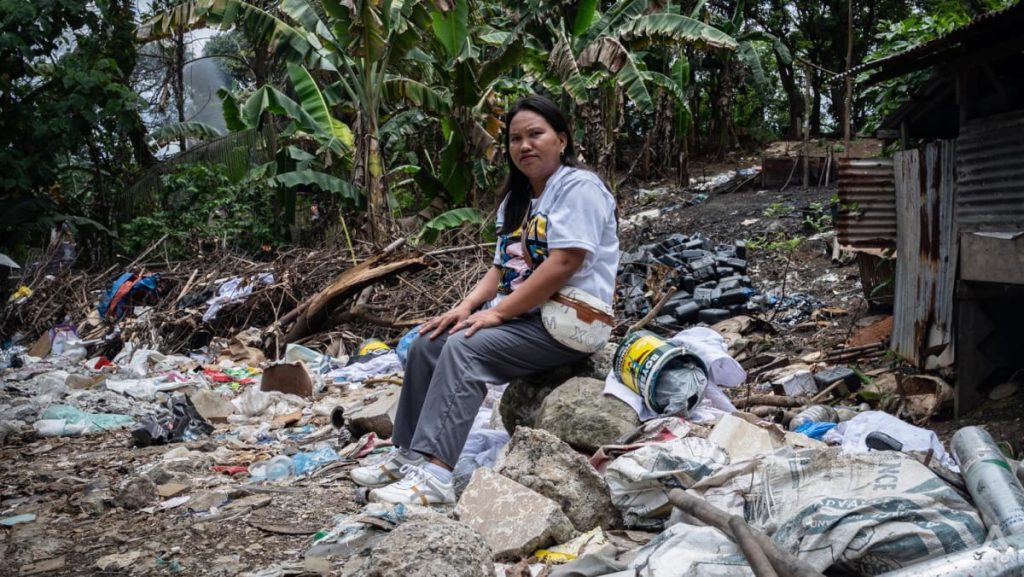Madam Gina Fabiano, a 43-year-old mother of five from the Philippines’ Rodriguez municipality, decided to work as a domestic worker in Saudi Arabia between 2016 and 2019 due to financial difficulties caused by the unproductivity of her family’s farmland after a landfill was opened nearby. Along with her husband, they worked as scavengers, earning an unstable income that was barely enough to support their family. The death of her mother in 2016 pushed her to seek work abroad to provide for her siblings and children. The opportunity to work in Saudi Arabia with a monthly pay of US$400 seemed like a solution to their financial struggles.
In 2016, there were 2.1 million Filipinos working abroad, with the majority coming from remote rural areas and impoverished urban neighborhoods due to the lack of job opportunities in their home country. Many like Madam Fabiano saw working overseas as a way to earn more than the local minimum wage of US$10 per day. However, the cost of working abroad was high, especially for mothers who had to leave their children behind. Missing out on important moments like birthdays, Christmas, and school milestones was a sacrifice they had to make. For Madam Fabiano, being unable to care for her youngest child, who was still in kindergarten when she left, was the most challenging part of working abroad.
The decision to work overseas as a domestic worker allowed Madam Fabiano to send money back home to support her family’s basic needs and her siblings’ education. Despite the financial benefits, the emotional toll of being separated from her children and missing out on their upbringing weighed heavily on her. The role of a matriarch for her siblings added to her responsibilities, making the decision to work abroad even more necessary. The reliance on remittances from overseas Filipino workers is a common phenomenon in the Philippines, with families depending on the money sent back home to survive and improve their living standards.
The trend of Filipinos seeking work abroad continues to grow, with the number of overseas workers reaching a record high of 2.3 million in 2023. This migration is driven by economic factors, lack of opportunities in the Philippines, and the promise of higher wages overseas. Despite the challenges and sacrifices involved, many Filipinos see working abroad as a way to provide a better future for their families. The separation from loved ones, especially children, remains a difficult aspect of this decision, as mothers like Madam Fabiano struggle to balance providing for their families financially while missing out on crucial moments in their children’s lives.
The story of Madam Gina Fabiano reflects the experiences of many Filipinos who leave their families behind to seek work abroad in hopes of escaping poverty and providing for their loved ones. The bittersweet reality of working overseas is evident in the sacrifices made and the emotional toll it takes on families separated by great distances. The resilience and determination of overseas Filipino workers like Madam Fabiano highlight the complex dynamics of migration, family separation, and economic necessity that drive millions of Filipinos to seek opportunities abroad.













